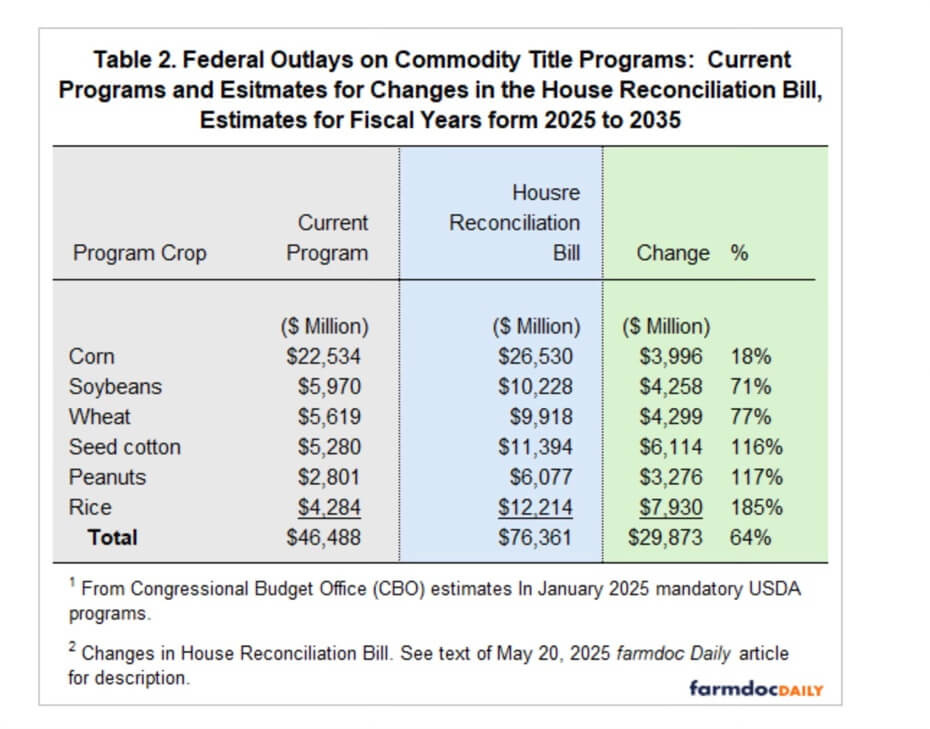MAHA Leaders Urge Rejection of Massive Subsidies to Big Ag in Reconciliation Bill
Republicans in House and Senate Reconciliation Pledge Billions for Big Ag, Pesticide Heavy Commodity Agriculture, Promise Nothing for Healthy Food or Regen Ag
Today, more than 293 leaders and organizations from the Make America Healthy Again (MAHA) movement sent a letter urging Congressional MAHA Caucus members to reject $75 billion in proposed subsidies for pesticide-intensive commodity crops in the House Budget Reconciliation bill.
Instead, MAHA leaders urge redirecting funds towards programs proven to enhance soil health and support regenerative organic agriculture, including the National Organic Program, USDA Natural Resources Conservation Service initiatives, and organic research and transition assistance.
The letter also calls on the Senate MAHA Caucus to stand firm against legislation that would grant federal preemption of state pesticide laws or provide liability shields to pesticide manufacturers.
“The bill is a massive bailout for Big Ag with no strings attached at a time when we need to make a massive shift to better farming practices. America’s ag policy needs to focus on improving the health of our nation’s food supply, not bailing out factory farms and pesticide and fertilizer companies when those policies have been failing farmers for decades." said Dave Murphy, founder of United We Eat.
This effort counters recent intense lobbying from the pesticide and industrial agriculture industries, and their Congressional allies, including the Senate introduction in April of the Food Security and Farm Protection Act (S. 1326), a rebranded version of the EATS Act, threatening a sweeping override of hundreds of state and local food, farming, and public health laws. Just weeks ago, 365 agriculture industry organizations urged Congress to restrict states’ rights with the "Ag Labeling Uniformity Act," inaccurately claiming pesticides are essential for environmental conservation and public health. In a recent letter, 79 Members of Congress echoed similar arguments in urging the Trump Administration to preserve the status quo when it comes to pesticides.
The MAHA community sharply disagrees, emphasizing the extensive scientific research tying pesticides to serious health concerns. "Giving a liability waiver to vaccines invited the vaccine industry to make safety a minor concern. Do we want to give pesticide and herbicide makers a green light to ignore the safety of their products too? Do we want to wait a decade or two before the risks of pesticides in our food are identified? Of course not! Pesticide liability shields are a ‘lose-lose’ for everyone,” said Dr. Meryl Nass, the president of Door to Freedom and prominent health expert and signatory.
Will Harris, a 4th-generation farmer and the owner of White Oaks Pastures from Georgia, stressed the economic and environmental urgency of shifting subsidies: "America’s farmers today have a chance to switch away from costly chemical inputs and work with nature on their farms. I used to be a high-input commodity farmer. When my farm made the shift to nature-friendly, regenerative farming, we not only became profitable and exponentially increased our farm's economic impact in our impoverished community, but we also experienced an amazing return of birds and pollinators to our farm.”
Murphy, who was also a chief fundraiser for Robert F. Kennedy Jr., warned of electoral consequences: "Americans from all political backgrounds overwhelmingly want clean, safe food systems and Congressional members actively opposing MAHA priorities — shifting subsidies and reducing toxic chemicals in our food — risk losing their seats. If MAHA Caucus members are serious about health, they will oppose federal pesticide preemption and state liability shields and increase funding to help transition farmers to better soil health and regenerative farming practices.”
Efforts to shield Bayer and Monsanto’s Roundup weedkiller from legal liability are wildly unpopular among Republicans, even in Iowa, the nation’s leading producer of Roundup Ready GMO corn and soybeans, where Murphy is from.
A 2024 poll by Accountable Iowa of Iowa voters found that efforts to pass cancer lawsuit liability bills, which were defeated in the Iowa state legislature, but passed in Georgia and North Dakota, could significantly cost Republicans in state and federal elections in 2026.
• “87% of registered Republican respondents oppose giving chemical companies like Bayer-Monsanto immunity from lawsuits.
• 94% of surveyed Republican voters agreed that it is very concerning that the EPA relies on industry-funded data to carry out safety studies.”
Referring to the House Reconciliation bill that is before the Senate, Zen Honeycutt, a key MAHA leader and founder of Moms Across America added: “What a deceptive strategy for Big Ag to be lobbying for a bigger payout than the FDA’s yearly budget under the guise of farmer support. Just think what $7.5 billion a year could do for our children via school lunches (who get only $2 per meal for food now). Rather than feed the toxic treadmill of chemical cocktails, why not create a market for non-toxic nutrient dense (organic) food for our future leaders and support farmers to transition to regenerative organic farming.”
MAHA leaders acknowledged the intense pressure legislators face from powerful industries but emphasized the necessity for courage and integrity in public health. They pledged robust support for MAHA Caucus members who prioritize the nation’s health over corporate interests.
If you want to better understand how much funding will be paid out to highly intensive pesticide crops, take a look at this chart.
The new Reconciliation Bill will raise guaranteed prices by 10% to 21% for the 6 Commodity Crops list below over the next 10 years with ZERO requirements for better soil health or regenerative practices.
The biggest windfalls go to crops in the Southern states, a number of which are prominently grown in the home state of Senate Agriculture Chairman John Boozman from Arkansas, where cotton, soybeans, and rice are heavily planted.
At a time when millions of Americans are calling for a healthier and toxic-free food system, this is basically a direct subsidy to Big Ag and the pesticide industry and further entrenches chemical-intensive agriculture that threatens human health and soil health.
Big Ag, Bayer/ Monsanto and Pesticide Industry Panic as More Evidence of Glyhosate’s Harm Pours In
Bayer, which purchased Monsanto in 2018, has faced increasing pressuring as their best-selling weedkiller Roundup has faced over 180,000 lawsuits, over glyphosate’s credible link to cancer. The German-owned pharmaceutical company has already paid out $12 billion in cash settlements in these lawsuits, and rather than responsibly retire Roundup from the market has chosen instead to go on a massive lobbying campaign across the U.S. to manipulate our state and nation’s laws to preempt state pesticide labeling bills that warn of the herbicide’s threats to human health.
This week, a new peer-reviewed study published by the Ramazzini Institute found that exposure to glyphosate and glyphosate-based herbicides at levels corresponding to the European Union’s Acceptable Daily Intake (ADI) level cause dose-related increases in multiple benign and malignant tumors in Sprague-Dawley rats of both sexes.
“We observed early onset and early mortality for a number of rare malignant cancers, including leukemia, liver, ovary and nervous system tumors. Notably, approximately half of the deaths from leukemia seen in the glyphosate and GBHs treatment groups occurred at less than one year of age, comparable to less than 35-40 years of age in humans. By contrast, no case of leukemia was observed in the first year of age in more than 1600 Sprague Dawley historical controls in carcinogenicity studies conducted by the Ramazzini Institute and the National Toxicology Program (NTP),” stated Dr. Daniele Mandrioli, Director of the Cesare Maltoni Cancer Research Center of the Ramazzini Institute and Principal Investigator of the study.
It’s a shame, at a time when the peer-reviewed evidence keeps confirming harm from pesticides, especially those most widely used on our nation’s commodity crops, the members of Congress would side with Bayer/ Monsanto and the pesticide industry over the future health of our nation’s children.





